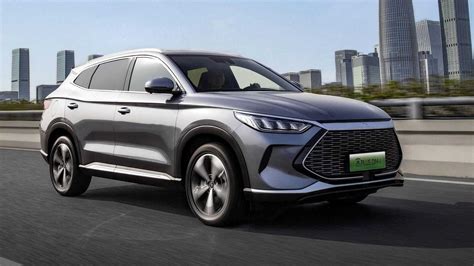The automotive industry is buzzing with excitement as BYD recently unveiled a hybrid powertrain capable of driving over 2000 kilometers on a single tank. This breakthrough has sparked reactions across the industry, from engineers to environmental policymakers. While many have lauded the technological achievement, others question the strategic implications in an already competitive electric vehicle (EV) market dominated by titans like Tesla.
BYD’s new hybrid draws you in with its impressive range, but to understand its full impact, we must weigh in on the broader economic context. The US has slapped a 100% tariff on Chinese EVs, with similar measures being contemplated in Europe. Critics argue that these tariffs, while intended to protect national industries and prevent market domination by Chinese EV manufacturers, ultimately stifle innovation and limit consumer choice. For example, consumers might miss out on affordable, efficient EVs like BYD’s new hybrid, which could significantly help reduce emissions on a global scale.
Public sentiment on these tariffs is mixed. Commentators make valid points on both sides. Some argue the tariffs are necessary to allow Western companies time to catch up technologically and economically. However, in the comments, concerns are expressed about how these measures might undermine the accessibility of eco-friendly vehicles. It’s hard to ignore the fact that Chinese EV companies have consistently provided innovative and cost-effective solutions, partially due to heavy government subsidies and a competitive ecosystem of subsuppliers.
Tesla has consistently enjoyed a significant market share in the US, but BYD’s latest feat places its dominance in question. The new hybrid’s 2,000 km range appeals to a broader demographic, especially those who are skeptical about the practicality of fully electric vehicles due to range anxiety. This hybrid seems to be a play to merge the reliability of traditional fuel engines with the environmental benefits of electric power. It might not be entirely groundbreaking as some rivals like BMW, with their i3 range extender, have dabbled in similar technology. However, BYD’s combination of extensive range and affordability could disrupt current market dynamics.
The economic debate doesn’t stop at tariffs and market competition; regulatory capture and industrial policies are also under scrutiny. A significant comment mentioned the combined effect of industrial policies, competitive pressures, and the subsupplier ecosystem, which have catapulted Chinese companies to the forefront of the EV revolution. With cities in China competing to attract tech companies, the business environment has become conducive for innovations like the BYD hybrid. In contrast, Western policies have sometimes seemed more restrictive, prioritizing local industry protection over consumer benefits.
There’s also the question of environmental and ethical considerations in the production of these vehicles. Multiple comments shed light on the environmental regulations, or lack thereof, in manufacturing hubs across China. The relative laxity in these regulations allows for cost savings that Western manufacturers cannot compete with. The discussion sheds light on the complex interplay between regulatory practices, pollution levels, and subsidies that, while producing cheaper cars, bear long-term health and environmental costs.
Privacy concerns also creep into the discourse surrounding modern vehicles. As one commentator succinctly put it, many consumers might prioritize a car that doesn’t send data to the manufacturer or third parties over other features like range or powertrain efficiency. This aspect of consumer demand pits modern data policies against traditional mechanical considerations. Older internal combustion engine (ICE) vehicles, which lack these data-collecting capabilities, still find loyal buyers. This shift underscores a potential new market segment that values privacy and data security over connected features.
In conclusion, BYD’s new hybrid represents a pivotal moment not only for automotive technology but also for nuanced debates on economic policy, environmental impact, and consumer privacy. While it’s easy to get carried away by the technical achievement of a 2000 km range, the broader implications on international trade policies, competition, and market dynamics cannot be ignored. As we look to the future, it’s clear that innovation in the automotive sector will continue to be shaped not just by engineering marvels, but by the intricate web of economic and regulatory frameworks that govern global markets.


Leave a Reply